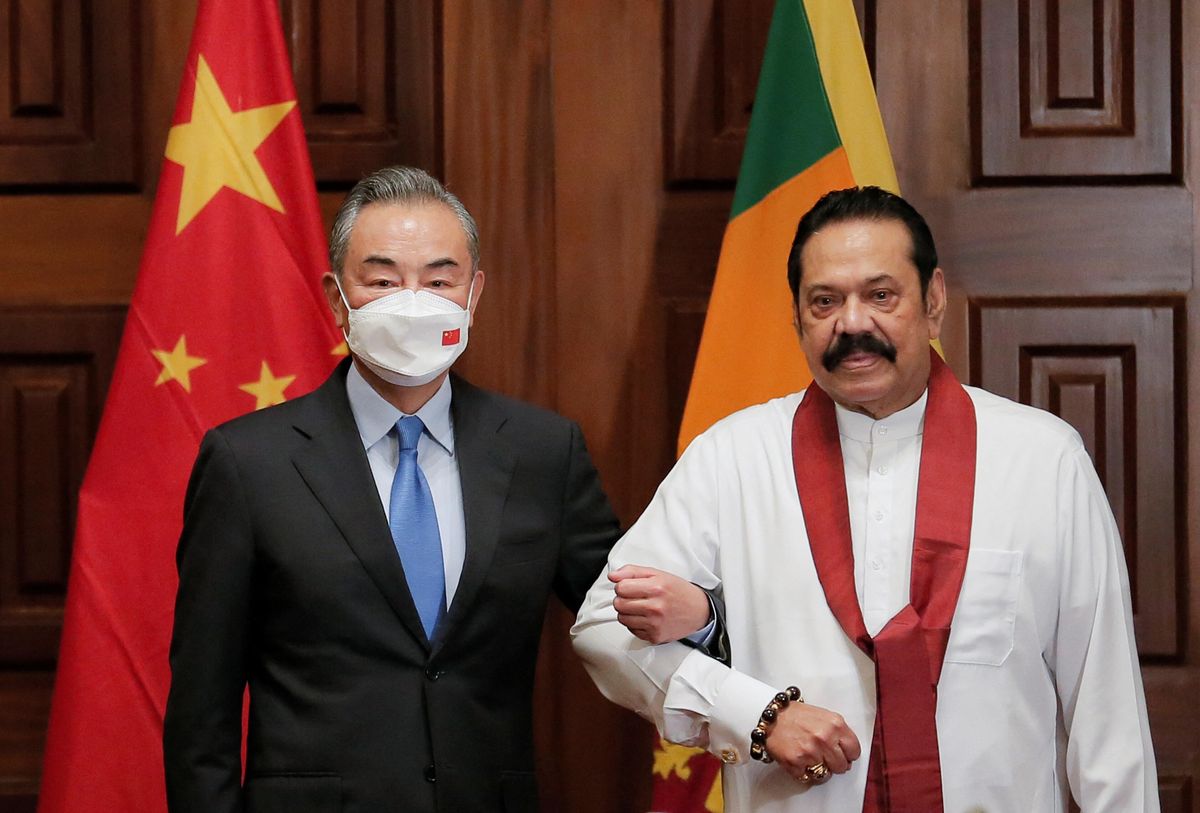Right on the buzzer, Sri Lanka on Tuesday narrowly avoided its first-ever sovereign debt default. But the cash-strapped country is still on the hook for a lot more cash this year, which is shaping up to be a very painful one for low-income countries deep in the red due to COVID.
Sri Lanka is running out of money because its tourism-dependent economy was wrecked by the pandemic, and won’t bounce back until foreign visitors return in big numbers. Omicron is dashing hopes that’ll happen anytime soon.
The government is in a real fix. Two-thirds of its revenue is going to pay just the interest on its loans. Foreign exchange reserves were almost depleted before a $1.5 billion currency swap with China. Food prices are soaring. The value of the local currency has plummeted.
Sri Lanka recently even resorted to bartering to settle a $251 million loan from Iran with monthly shipments of tea.
Partly to blame is China, to which Sri Lanka owes an estimated $3.5 billion. Beijing is the country’s top creditor, accounting for 10 percent of the country’s debt. The Chinese are traditionally tough on restructuring — and always include onerous terms in the fine print in case they get stiffed.
The Sri Lankans found out about this the hard way. The country is often cited as a case study in the perils of China’s debt trap: in 2017 it was forced to give a Chinese state company a 99-year lease to operate a strategic port as collateral for defaulting on a $1.1 billion loan. Other countries like Djibouti, Laos, Zambia, and Kyrgyzstan — all of which owe China more than 20 percent of their GDP — are in a similar predicament, with little leverage and much sovereignty to lose.
But pro-China President Gotabaya Rajapaksa would rather ask Beijing for more money than the IMF for a bailout. The president and his brother, PM Mahinda Rajakapsa, say Chinese loans have been essential to rebuild Sri Lanka's infrastructure after 25 years of civil war. The duo swept back to power in 2019-2020 in no small part due to their promises to invest China's money in airports and roads to boost tourism.
This time, however, Sri Lanka avoided defaulting thanks to an eleventh-hour lifeline from India, China’s regional rival and eager to counter Beijing’s financial muscle in its own backyard. Still, borrowing from Peter to pay Paul is hardly a long-term solution to the country’s current debt crisis because most of that debt is in bonds held by international creditors who don’t play politics.
What’s more, Sri Lanka is not the only low-income country with big debt problems from COVID. The World Bank estimates that many of the world's poorest countries face an almost $11 billion surge in debt repayments in 2022 from the previous year.
Most of them were already highly indebted before the pandemic, and had to borrow even more (from China, international financial institutions, or capital markets) to weather COVID-induced economic crises. Even for those countries who signed up to a joint IMF/G20 plan to defer payments on their pre-pandemic loans, the extended grace period expires in December — when there will still be much uncertainty over their ability to repay all that accumulated debt.
While the vast majority of advanced industrial economies have almost reached pre-pandemic levels of growth today, the rest of the world is lagging behind. For low-income countries, sluggish economic growth means governments can't raise enough revenue from taxes to pay their debt. The longer their economies suffer, the harder it'll get for them to settle their bills — and the wider the gap with rich nations will grow.
Meanwhile, Sri Lanka is looking down the barrel of a gun if it doesn’t restructure its debt soon.
Printing money is out of the question because that would make already-high inflation skyrocket. Sri Lankan economists are asking the government to temporarily suspend payments, and use its scarce cash reserves to buy food, fuel, and medicine.
But the unintended consequences of a default could be far worse. It could trigger a bigger crisis by cutting off Sri Lanka from the international financial system. When foreign credit dries up, it’ll just be a matter of time before there’s a run on banks, and social unrest follows.


















